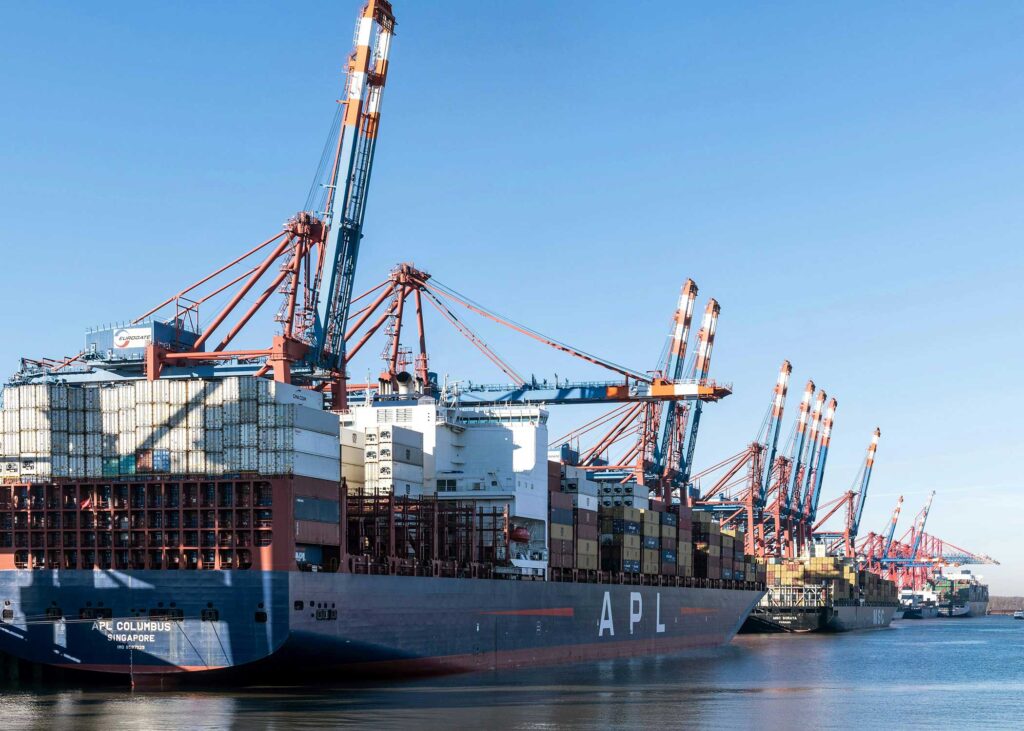VAT on Imported Services

The Value Added Tax (VAT) on Imported Services (VIS) in Zimbabwe ensures that services purchased from foreign entities and used by residents are taxed similarly to those offered by local businesses. This piece delves into the background, relevant legislation, detailed VAT guidelines, and the effects of VIS on businesses and the economy. VIS targets services brought into Zimbabwe and consumed by residents. The standard VAT rate stands at 15%. The tax obligation is triggered by the earliest of these events: the issuance of an invoice, payment to the foreign provider, or completion of the service. Taxpayers must pay the tax by the 25th of the month after the service is provided, and they can reclaim VIS if the services directly contribute to taxable outputs. Payment of VAT on imported services can be made in local currency. The value for imported services is determined by the greater of the payment made or the open market value. Typically, ZIMRA applies a 15% rate on the payment. Barter or donation transactions are priced at market value, and services given without payment are valued at zero unless involving connected individuals. Services that are usually zero-rated or exempt locally, such as actuarial, insurance, medical, financial guarantee, or suretyship services, are exempt from VAT. Reclaiming VIS involves intricate paperwork and compliance. Taxpayers can offset the tax paid against their VAT obligations if the imported services are used directly for producing taxable outputs. The requirement to pay VAT by the 25th of the next month imposes a strict timeline for compliance. Businesses must ensure they have sufficient funds and documentation to meet this deadline, or they risk penalties and interest. The option to pay VIS in local currency adds flexibility, especially for businesses with limited access to foreign currency. In summary, the implementation of VIS significantly impacts businesses, particularly those engaging with international service providers. Although the ability to reclaim VIS offers some relief, the requirement to prepay the tax can pressure cash flows, especially for small and medium-sized enterprises (SMEs) with limited financial resources. The complex conditions for claiming VAT refunds present additional challenges, necessitating detailed records and thorough documentation to successfully reclaim VIS. This administrative burden can be particularly challenging for smaller enterprises lacking the capacity to efficiently manage these processes.
Non-resident shareholders tax (NRST) treatment in Zimbabwe.

What is Non-resident shareholders tax (NRST)? Non-resident shareholders tax is tax levied on dividend accruing to a person who is non-resident of Zimbabwe. Who is a Non-resident? A Non-Resident means – a person, other than a company, who; or a partnership or foreign company which is not ordinarily resident in Zimbabwe. This means the definition is met any time that a resident tax payer in Zimbabwe makes payments to a foreign resident entity or individual. For the purpose of Non-resident shareholders tax, a dividend is income distributed by a company to its members as return of capital invested by them. Required to withheld tax is every company that distributes a dividendto: A person, other than a company, a pension fund, a benefit fund or a medical aid society, who is not ordinarily resident in Zimbabwe; or A partnership which is not ordinarily resident in Zimbabwe; or A foreign company; or A foreign life insurance company, in respect of any shareholding determined by the Commissioner as having been acquired from funds other than those arising from thelife insurance business in Zimbabwe of that foreign life insurance company; The Non-Resident Shareholder Tax is levied at a rate of 10% or 15% of gross dividend paid by a listed company or unlisted company respectively. A lower rate applies to a paying company, provided that there is a double taxation treaty (DTA) in place between Zimbabwe and the non-resident company‘s country of resident. Refer to our DTA agreement article. The following distributions are however excluded from the definition of dividends: Any amount so distributed by a building society which is not distributed as a dividend inrespect of—– In the case of the Central African Building Society, a paid-up permanent share class a‖; and In the case of the Founders Building Society, an ordinary permanent fully paid-up share; and In the case of the Beverley Building Society, a foundation fully paid-up share or class a‖ share an Any bonus shares; and Any amount so distributed which, in the opinion of the Commissioner, is a return of the amount received by the company for its shares; and Any amount so distributed by the Industrial Development Corporation of Zimbabwe, Limited, in respect of its issued share capital; and. Any amount so distributed by the Zimbabwe Development Bank established by section 3 of the Zimbabwe Development Bank Act [Chapter 24:14]; and Any amount so distributed to the International Finance Corporation referred to in the International Financial Organizations Act [Chapter 22:09]; and Any amount so distributed by a licensed investor which arises from his operations in an export processing zone; and Any amount so distributed which, in the opinion of the Commissioner, is a return of an amount contributed to the capital of a private business corporation by a member; Any amount so distributed by an industrial park developer which arises from the operation of his industrial park. A dividend is deemed to have been distributed to when it is paid to shareholder, credited to his account or so dealt with that he becomes entitled to the dividend, whichever comes first. Once NRST is withheld, the payer must give the shareholder a withholding tax certificate showing: the gross amount of the dividend; and any reduction of dividend for the purpose of computing NRST. the amount of the non-resident shareholders‘ tax withheld. Non-resident shareholders tax (NRST) treatment in Zimbabwe. What is Non-resident shareholders tax (NRST)? Non-resident shareholders tax is tax levied on dividend accruing to a person who is… Unraveling the Finance Act of 2024 Examining the significant changes introduced by the Finance Act No. 2 of 2024. The Finance Bill, H.B. 8, 2024, underwent… Hello world! Welcome to WordPress. This is your first post. Edit or delete it, then start writing!
Unraveling the Finance Act of 2024

Examining the significant changes introduced by the Finance Act No. 2 of 2024. The Finance Bill, H.B. 8, 2024, underwent minimal changes, with the exception of the introduction of fees on certain presumptive taxes. It appears that the House leadership prioritized the concerns of thousands of informal traders who were dissatisfied with the fees imposed in the Finance Bill. Consequently, these measures are now legally obligatory for businesses and individuals to comply with. Corporate Income Tax. Now legal, under the Finance Act No 2 of 2024 ; 1 August 2024 shall be the effective date. Payment of Provisional tax (QPDs) in foreign currency. Companies receiving income in foreign currency and projecting that 50% or more of their income will be in foreign currency must remit 50% of their Quarterly Provisional Payments (QPDs) in local currency and 50% in foreign currency. For companies whose revenue exceeds 50% in local currency, taxes must be paid in the currency of trade. Employment Tax. Now legal, under the Finance Act No 2 of 2024 ; Bonus-Free Threshold is now $700 from $400 Two tax reviews due to change in currency from RTGS to ZiG. period beginning on the 1st of January 2024, and ending on the 4th of April, 2024 (RTGS era). period beginning on the 5th April, 2024, and ending on the 31st of December, 2024 (ZiG era). Intermediated Money Transfer Tax IMTT rates are as below as per the finance Act No 2: 2024 Tax Amount Rate Fees $100 $0.05 USD IMTT (ZIG) Any Amount 2% IMTT (ZIG) Transaction exceeds the equivalent of$500,000 USD $10,150 USD (at the prevailing interbank rate) IMTT (USD) $500,000 USD $10,150 USD Outbound foreign payments 2% Zimbabwe gold backed digital tokens 2% Presumptive Taxes Major changes from the Finance Bill were witnessed here Description Previous Rates (Monthly) Proposed Rates (Monthly) Operators of driving schools providing drivingtuition for:• Class four vehicles only• Class 1 and class 2 vehicles (whether or not inaddition to providing driving tuition for otherclasses of vehicles) USD $300USD $600 USD $50USD $100 Operators of hairdressing saloons USD $300 perchair USD $5 perchair Informal cross boarder traders 20% of thevalue for dutypurposes 20% of thevalue for dutypurposes Informal Traders 10% of the monthly rentals from which they operate 10% of the monthly rentals from which they operate Operators of restaurants or bottle stores USD $300 USD $35 Cottage industry operators USD $300 USD $100 Operators of commercial waterborne vessels witha carrying capacity (including cabin crew) of:• less than 5 passengers per vessel• 6 to 15 passengers per vessel• 16 to 25 passengers per vessel• 26 to 49 passengers per vessel• more than 49 passengers per vessel USD $80USD $100USD $150USD $200USD $300 USD $30USD $35USD $50USD $70USD $100 Operators of commercial water borne vessels of adescription referred to in paragraph 2(b) of thedefinition of commercial water borne vessel in the26th schedule of the Income Tax Act (that is tosay, operators of fishing rigs), USD $250 USD $85 Operators of beauty and massage parlours – USD $100 Operators of gymnasia or fitness centre – USD $100 Operators of butcheries – USD $50 Unraveling the Finance Act of 2024 Examining the significant changes introduced by the Finance Act No. 2 of 2024. The Finance Bill, H.B. 8, 2024, underwent… Hello world! Welcome to WordPress. This is your first post. Edit or delete it, then start writing!
